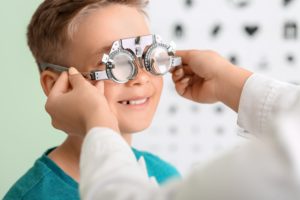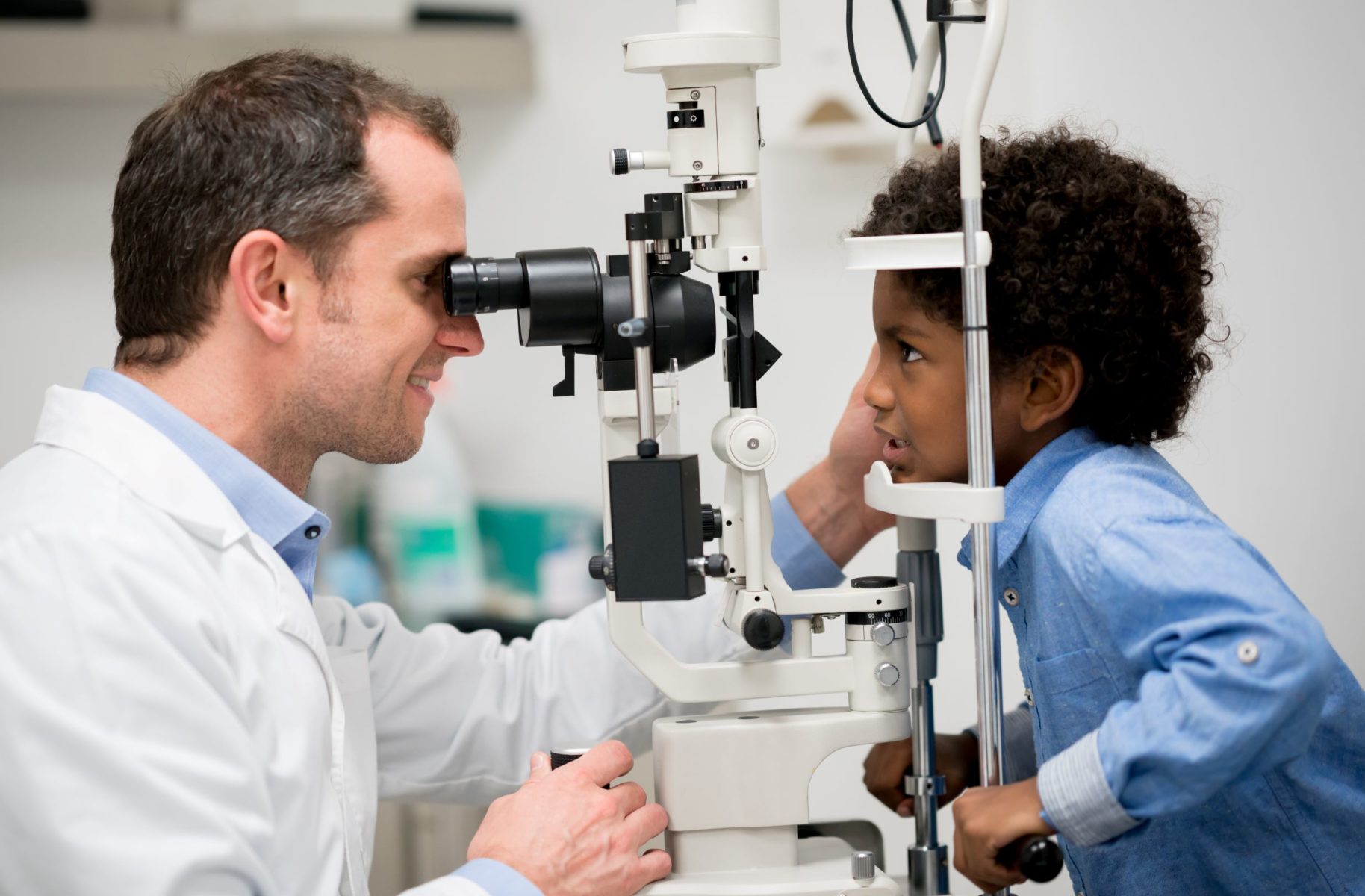Some children aren’t brought to a pediatric optometrist until after their parents or teachers notice that they seem to be having trouble with their vision. This means that unfortunately, the child has often already spent years struggling with eye problems. Not only can this cause the eye problems to worsen, but it can also impair a child’s ability to further develop fine motor, gross motor, navigational, and even reading and writing skills.
Ready to schedule a pediatric eye exam in Michigan?
When should I take my child for an eye exam?
Children should have their first eye exam when they are between 6 months and a year old. Assuming their exam is normal, they should have a second exam between 3 and 5 years old, and then should move to annual exams starting in kindergarten.
How do I prepare my child for the eye exam?
Talking to children about what to expect can help them feel more comfortable in the optometrist’s office. Reading books with your kids about going to the eye doctor can also help them see the experience as something that other kids their age are going through as well. If possible, you can schedule their eye appointment after your own, so they can watch you first. Always be calm and confident when taking your child to an eye appointment, as kids tend to draw energy from parents.
What will the doctor do to make my child feel more comfortable?
It’s important to talk with your child’s optometrist or ophthalmologist before bringing your child in. They can tell you what they normally do to make kids in their practice feel comfortable.
During the exam, eye doctors who are used to dealing with children will likely want you in the room and will be upbeat and confident when the children are in their presence. They’ll also likely talk through what they’re doing with children who are old enough to understand, which can relieve the child’s anxiety.
What should I expect after the exam?
If your child’s examination shows that his or her eyes are normal, the optometrist will schedule a follow-up exam with you and send you on your way. However, it’s possible for the doctor to discover an abnormality that needs treatment.
Common childhood eye problems include nearsightedness or farsightedness, double vision, cataracts, and strabismus. Depending on the concern, treatments may include glasses or training tools to help strengthen the eyes’ ability to work together. Very occasionally, surgery is necessary to correct an issue.
As with most medical concerns, prevention and early intervention is the best way to care for your child’s eyes. Encourage good eye health with children, such as having them wash their hands before touching their faces. Additionally, bring them into an eye doctor’s office for regular exams so that if there are any concerns, they can be addressed as early as possible.
Schedule an appointment with a pediatric ophthalmologist today!
Comments are closed.



